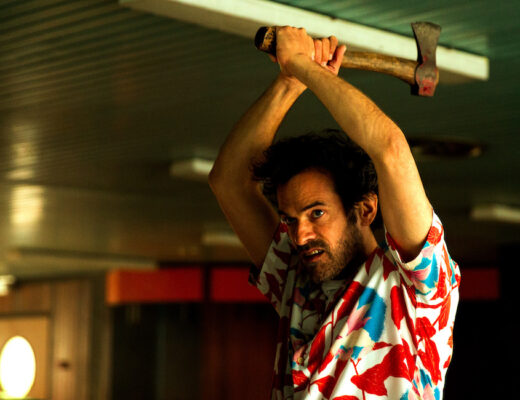Red Beard — despite its three-hour-plus runtime, massive 2.35:1 widescreen aspect ratio, and a production history lasting approximately two years — is a rather humble motion picture. It’s certainly one of the most modest statements Akira Kurosawa ever made in his career, only realized on a rather lavish scale — and one of the last he would be allowed to make of this size. After an unprecedented run of internationally and domestically acclaimed creative endeavors that were also financially fruitful, Red Beard would prove to be the final work for which the director would be able to procure easy funding. The types of budgets Kurosawa was used to working with simply weren’t feasible in the 70s; and more importantly, the type of radical humanism which informed his previous works were increasingly out of vogue (his other two late-career epics, Kagemusha and Ran, have much more decidedly icy demeanors by comparison). In many ways, Red Beard is a rather obtuse work in these regards: fundamentally it’s a morality tale, one expressed with little of the magnificent action and lush landscapes the director was known for at that time, with a passive edge that’s not inherently critical of any particular worldview. Young doctor Yasumoto (Yūzō Kayama, a popular singer who brought guaranteed box-office success) sees the world through materiality and status; older mentor Niide (Toshiro Mifune) doesn’t. As one would expect, conflict arises, but not in the form of some hackneyed generational tension that fails to reckon with the systemic issues of valued class in society. Yasumoto learns not from being lectured at constantly, but from the small acts of compassion he witnesses in an otherwise mundane and cruel world. No grand posturing, no wild noble revelations; instead, it is simply the realization that helping others isn’t always about practicality, but what is just.
Mifune, a thespian of intense stature whose usual approach is to flail uncontrollably whenever he works with Kurosawa, is a reserved force here, mere glances able to convey a foreboding maturity that borders on tenacity.
If this all sounds like some corny-ass, old-man sentimentality from Kurosawa, at least Red Beard is aware of how to properly build pathos in a manner where all things hold actual thematic weight. There’s no wild swinging for the fences when it comes to the narrative’s dramatization of events, no real attempt for any big conclusion (other than one rather banal side-plot about sick Yasumoto needing to be healed by his forgettable love interest). The stakes remain decidedly low; there’s never any worry about the likelihood of our protagonists failing because it’s established early on that the concept of ‘winning’ or ‘losing’ hold little weight in the real world. Mifune, a thespian of intense stature whose usual approach is to flail uncontrollably whenever he works with Kurosawa, is a reserved force here, mere glances able to convey a foreboding maturity that borders on tenacity; it’s easily the best (and most nuanced) performance the iconic actor has ever given, demonstrating an understanding that what’s needed for this material isn’t his typical bodily bombast. In turn, Kurosawa matches this level of clear-headedness — featuring none of the wallowing pity of Ikiru — and is able to drum affecting, expressive compassion from the most prosaic of proceedings.
Part of Kicking the Canon – The Film Canon.







